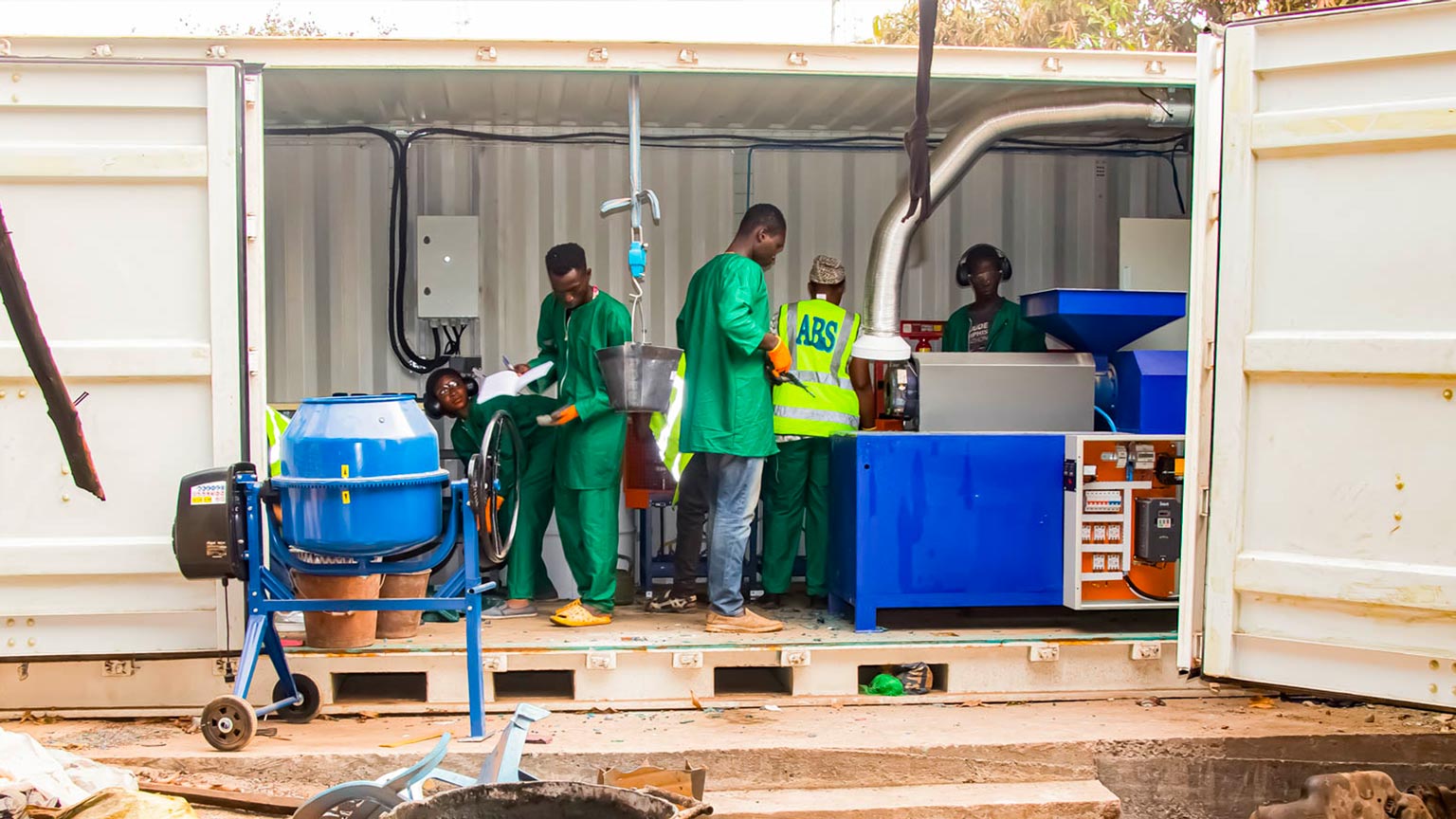
Local Factories: Launch of Guinea’s First Micro-Plastic Waste Recycling Plant
We first met Mariam, the entrepreneur and founder of Binedou Global Services, in Paris in December 2021. She came to France thanks to a networking mission organized by the French Embassy in Guinea and contacted us by email.
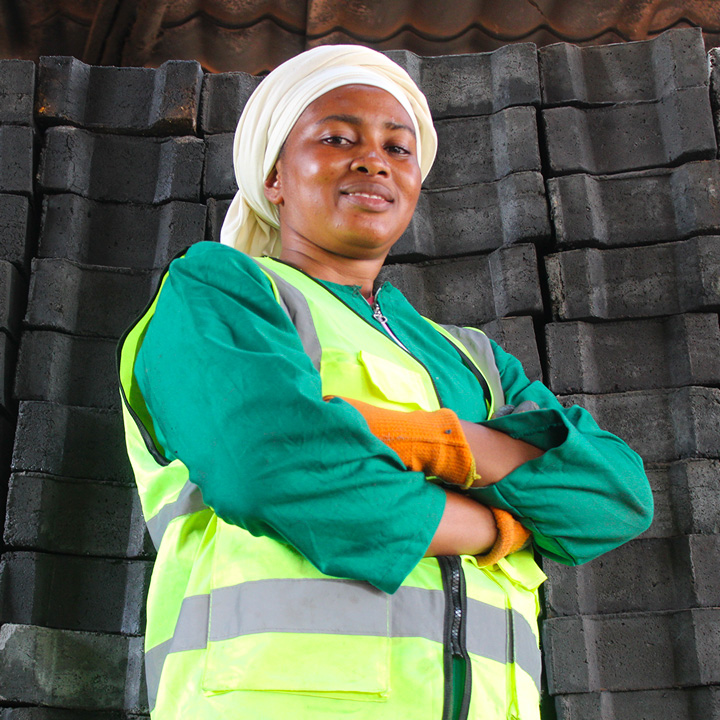
Mariam Keita is one of the winners of the 2019 Women In Africa Initiative (WIA) competition. We have since exchanged several times to set up a collaboration, and we had already introduced her in our article last year.
First Phase: Research and Development
BGS Recyplast (Binedou Global Services) has been based in Conakry, Republic of Guinea, since 2018. It produces about a hundred road pavers per day using plastic waste collected in the city. Since their meeting, Plastic Odyssey and Mariam have been working hand in hand to develop and expand BGS Recyplast’s existing recycling activity.
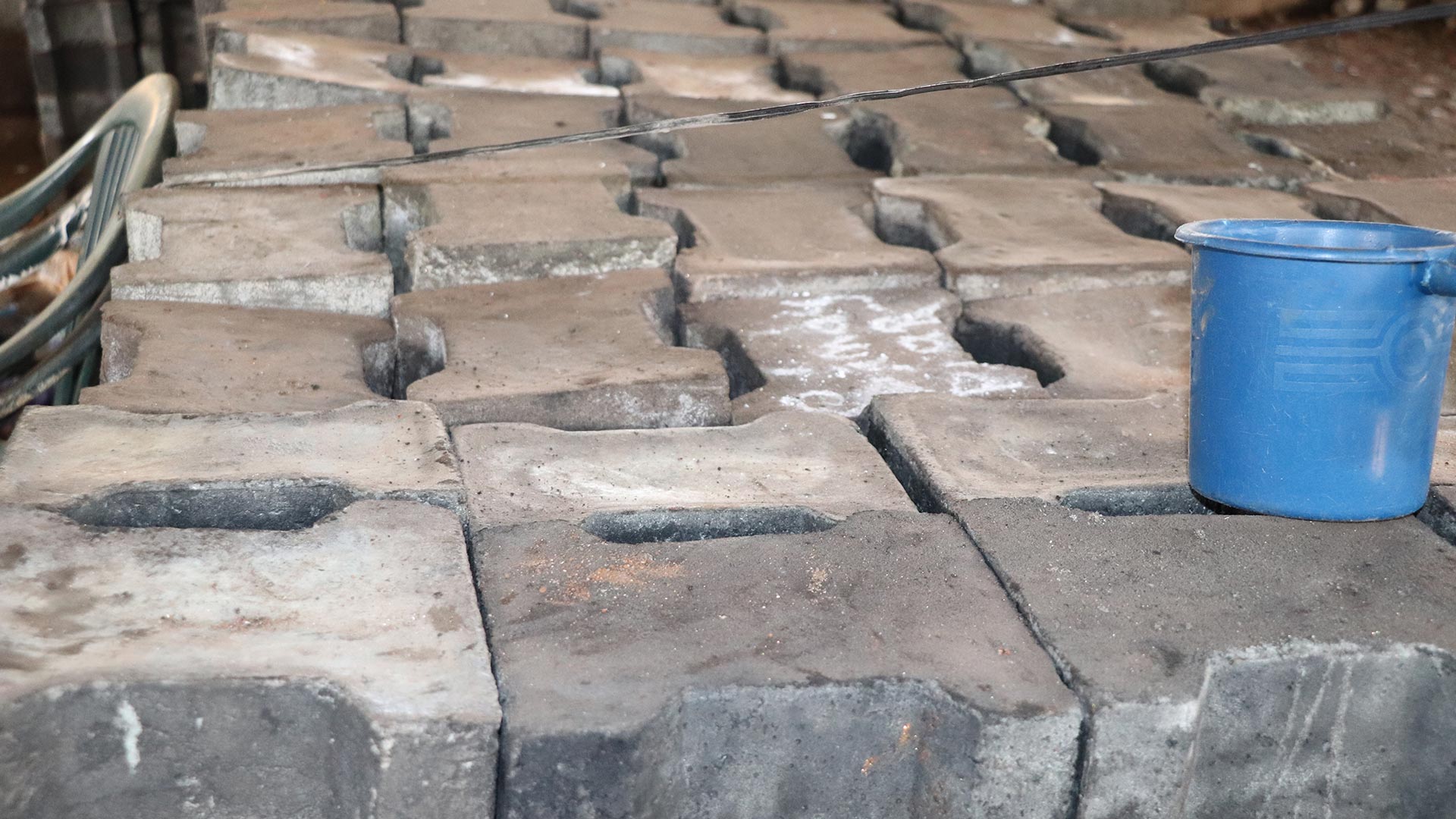
“We quickly organized a mission to Conakry, Guinea, to assess the local waste management situation, learn about the context, and observe the working environment of BGS,” says Tom Bébien, head of development for the Local Factories solution. Jean-Baptiste and Tom traveled to Conakry for about ten days in February 2022, a very fruitful mission where they met ministers and advisers to the prime minister to discuss a future collaboration.
This was followed by the implementation of a project to develop BGS Recyplast‘s activity, imagining the technical device but also and especially the associated economic model. It is necessary to improve efficiency, automate production, optimize safety, build a financial plan, find partners, and meet the many challenges that Mariam and the Plastic Odyssey team had to overcome.

Recycling Plant
During the summer of 2022, the first Plastic Odyssey containerized factory was born, containing all the necessary equipment to transform Conakry’s plastic waste into three formats of pavers in a semi-industrial way. These recycling machines, ready to be used, have a production capacity of about 600 pavers per day, six times more than before.
The container left for Guinea in October 2022, after being presented during the departure of the expedition in September 2022 on the esplanade of the Mucem in Marseille.
After many adventures (bribery, scams, customs delays), the container finally left the port of Conakry in mid-December. It traveled about forty kilometers to reach the production site of BGS Recyplast, located at KM36 in the suburbs of Conakry. A 50-meter crane is needed to position it in its final location.
The container and equipment are finally in place, and a several-day training is conducted by the Plastic Odyssey teams to transmit all instructions on the use, safety, and maintenance of the machines. Production and recycling can thus start immediately.
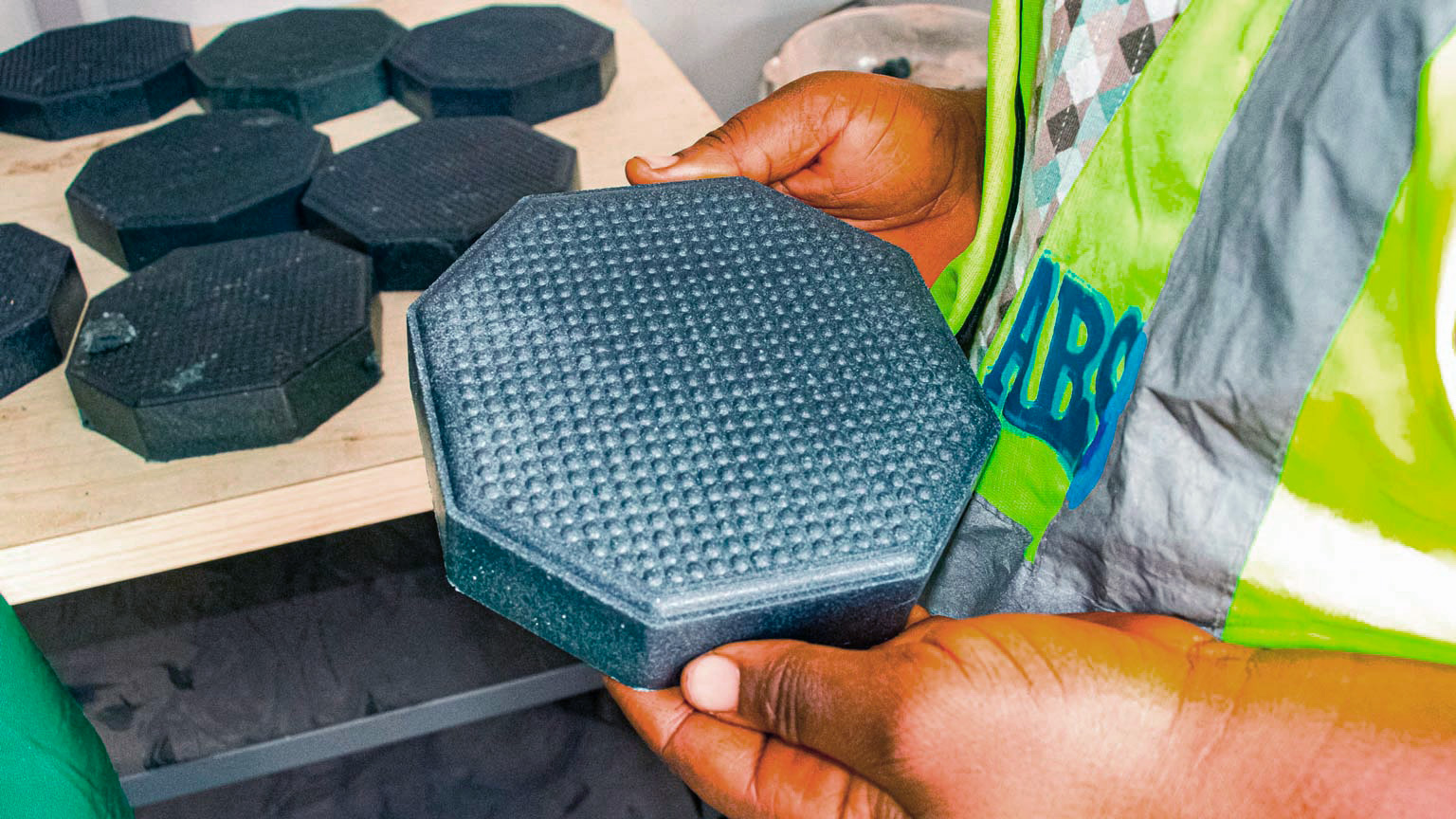
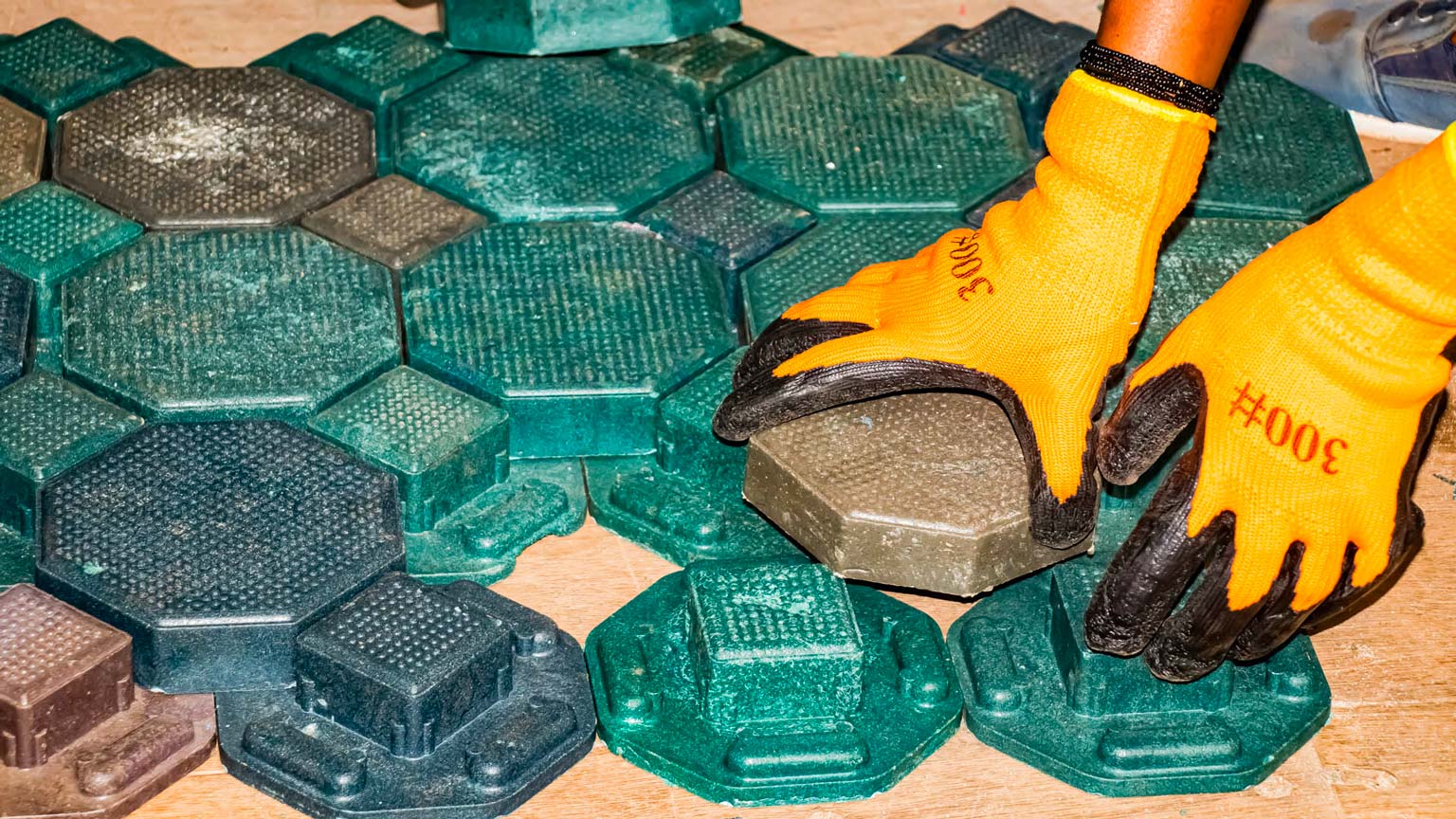
Low-tech Machine Presentation
This containerized micro-factory contains all the machines and tools necessary to transform Guinean plastic waste into pavement, including:
- A shredder to reduce plastic waste into chips. A plastic-sand mixer to homogenize the mixture of plastic. In this form, they can be more easily stored and recycled.
- A plastic-sand mixer to homogenize the plastic and sand mixture, which is previously weighed to obtain the desired exact proportions. The mixture is then poured into the extruder’s hopper.
- An extruder to melt the plastic material: extrusion involves gradually heating and mixing the plastic chips and sand until they form a malleable paste that will then be shaped and cooled to create the pavers.
- Four hydraulic and pneumatic presses to shape the plastic material into molds: the hydraulic press allows the molding of the melted plastic coming out of the extruder or plate oven, and therefore to manufacture a new object made of recycled plastic. The presses can press pavers of various sizes and shapes, only the molds need to be changed.
Other equipment present in the container is used for the proper functioning of the process, the safety of the operators, and the proper use of the machines. This includes a suction and ventilation system that extracts potential fumes from heating the plastic, a workbench and a storage cabinet for tools and equipment, personal protective equipment (PPE), and all the necessary materials for equipment maintenance.
Commissioning of the recycling micro-factory

In addition to the technical device, this containerized micro-factory is accompanied by its own economic model.
With an effective working time of 7 hours, the production can reach more than 500 pavers per day. Based on 280 working days per year, more than 140,000 pavers made of recycled plastic are produced each year, representing approximately 100 tons of recycled plastic.
At the time of installation and training, the production capacity of the micro-factory is approximately 50%. After one month of getting familiar with the equipment, the production capacity increases to 75% and reaches 100% after 2 months of use.
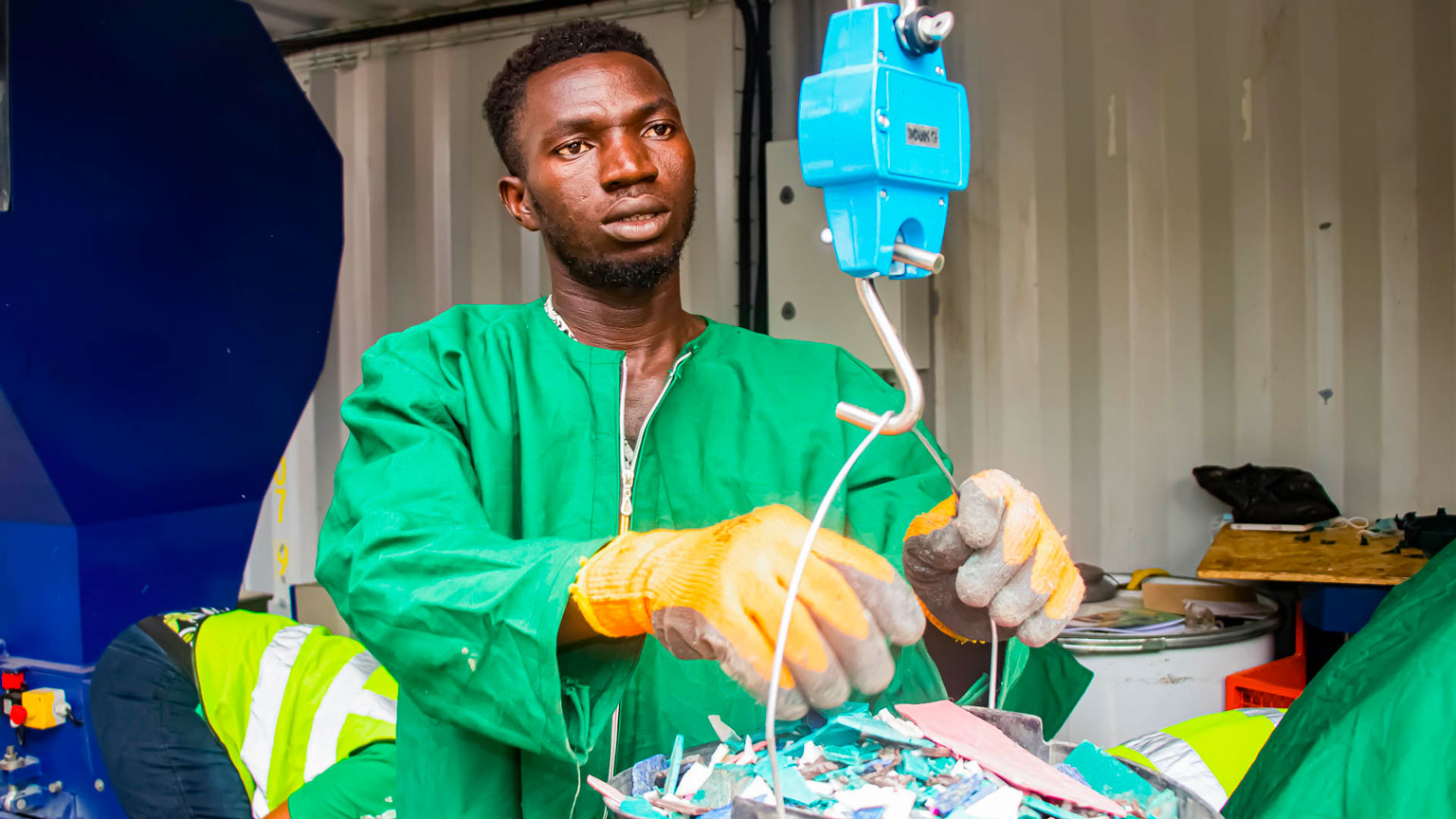
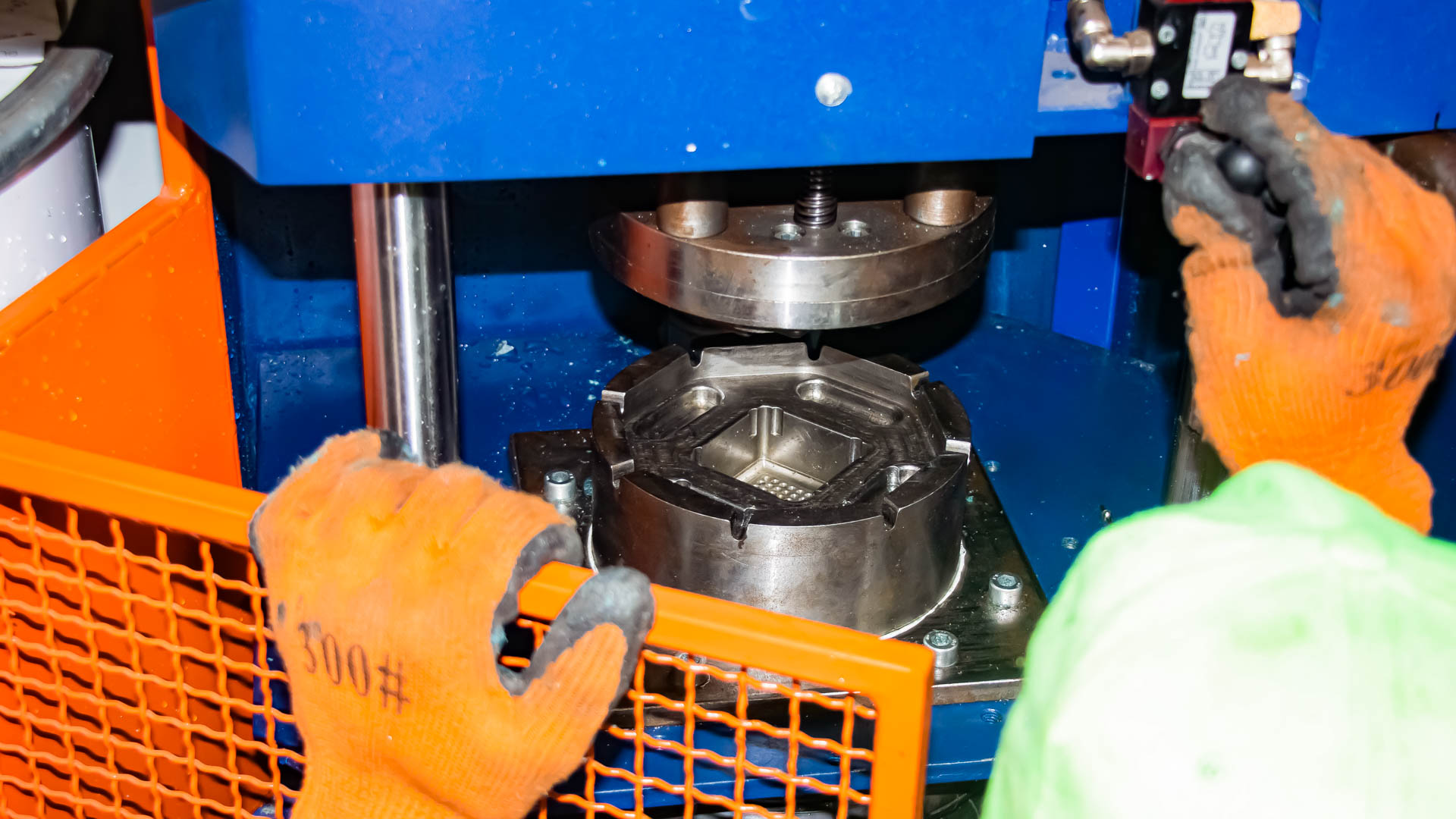
In addition, 6 to 8 positions are necessary for the proper functioning of this micro-factory, divided between overall management, supply chain, material preparation, processing, and deliveries. The salary of each employee is taken into account in the economic model to ensure the sustainability of these created jobs.
This semi-industrial production of quality recycled pavers, combined with simple, robust, and energy-efficient equipment, ensures a viable and sustainable economic model over time, based mainly on the sale price of recycled pavers.
Producing large quantities of pavers allows for reaching customers such as municipalities, construction companies, or other actors in urban development.
Inauguration event
On March 18, 2023, the official inauguration of the micro-factory took place. This event took place during the stopover in Guinea, directly on-site in the town of Coyah, near Conakry. The purpose of this event was to officially launch the plastic waste recycling activity, to raise awareness of the initiative, and to further anchor the project in the local community.
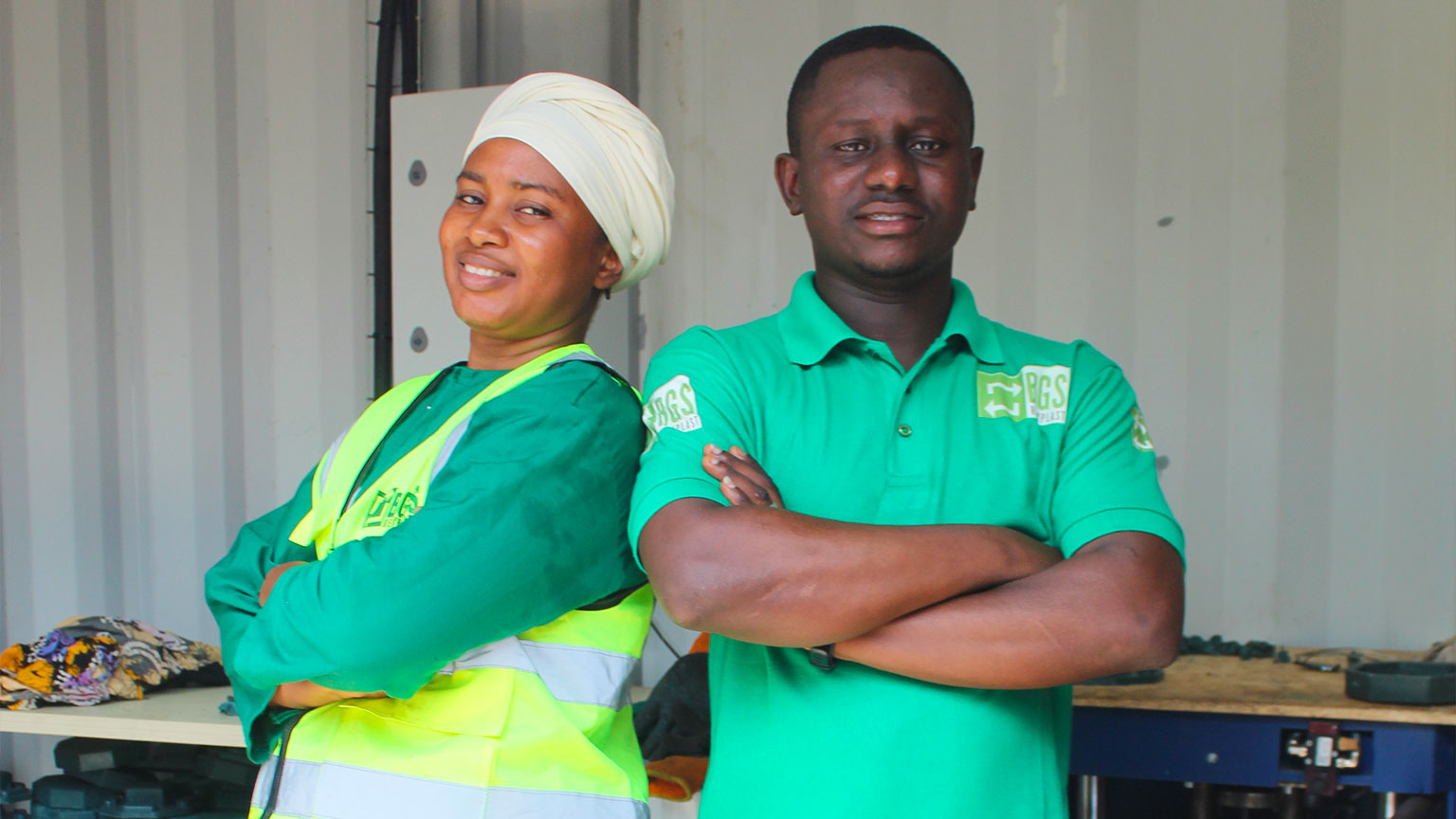
The launch of this recycling activity is an important source of inspiration for the region and is a concrete example of a new project addressing existing public issues such as plastic waste management. This activity will serve as an example and idea for all African entrepreneurs who wish to reclaim their clean and healthy territory, while ensuring economic and social sustainability.

The Plastic Odyssey Local Factories are inspired by innovations and systems used on the ground around the world. They bring together, in the form of a container, all the machines necessary for the transformation of waste into new material or object.
